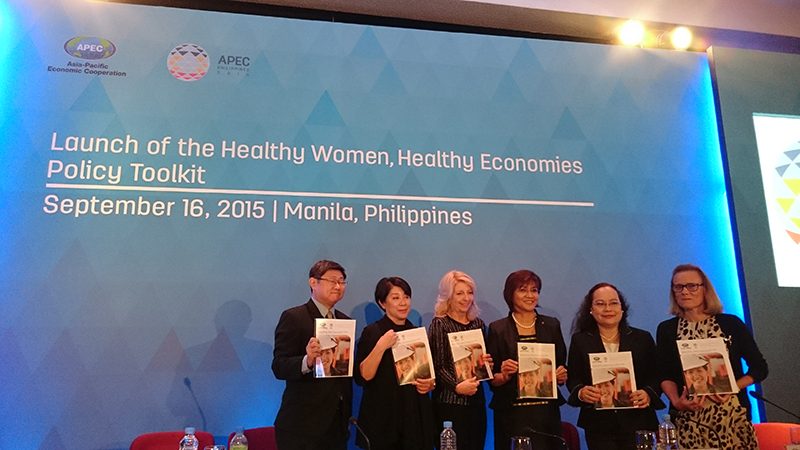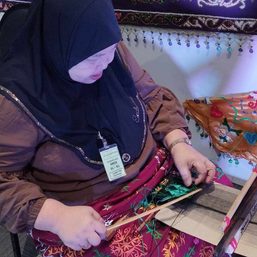SUMMARY
This is AI generated summarization, which may have errors. For context, always refer to the full article.

MANILA, Philippines – Working women across the 21 member-economies of the Asia Pacific Economic Cooperation (APEC) are envisioned to have a greater contribution to the economy with the launch of a new policy that focuses specifically on women’s health. (READ: Women at the top)
The APEC Healthy Women, Healthy Economy Policy Toolkit was launched by APEC officials with the Department of Trade and industry (DTI) and the Department of Heath (DOH) at the APEC Women and the Economy Fora on Wednesday, September 16.
The initial implementation of the toolkit will be done in the Philippines over a 6-month period, shared DOH Assistant Secretary Paulyn Jean B. Rosell-Ubial.
It will be a joint effort of the DOH and the Department of Labor and Employment (DOLE) with selected private enterprises in the economic zones of Region 3, particularly in Pampanga.
“Advancing gender equality is in the strategic interest of economies and also good for companies’ bottom lines. The data is clear that when women do better, communities do better, businesses do better, and economies do better as well,” said Catherine Russell, US ambassador-at-large for global women’s issues.
There are 600 million women in the labor force across the APEC region. A United Nations (UN) report showed that limits to women’s participation across the region costs a cumulative $89 billion (P4.1 trillion) every year, DTI Undersecretary Nora Tarredo shared at the launch.
“Literally then, healthy women means healthy economies,” Russel said. (READ: PH women and development beyond 2015)
The International Labor Organization (ILO) states that based on its research, almost a billion more women worldwide can play a more active role in their economies. This includes women in informal, vulnerable, and unregulated employment, as well as migrant women and those with health problems.
Addressing barriers
The toolkit aims to address such gap by making it easy for firms across the region to introduce health policies that facilitate women’s participation in the economy.
It offers a one-stop menu of policy options, made up of best practices researched by the US-funded Healthy Women, Healthy Economy Initiative.
These best practices can then be matched to local social and economic conditions in each individual country. The adoption of these practices by firms, though, is on a purely voluntary basis.
“When evidence and good practices for improving women’s health are within arm’s reach, it helps to drive the entire process,” Terrado said.
The specific aim is develop strategies to mitigate identified barriers to women’s economic participation such as:
- Barriers of reproductive health issues
- The “double burden” for women who are saddled with the responsibility of caring for the very young and the very old in most societies
- Security issues such as traveling at night and going to remote and isolated areas
PH action
The DOH is developing a scorecard to be ready by October, which will identify specific indicators for interventions implemented by the firms that will volunteer to adopt such practices.
Ubial shared that the DOH is anticipating an initial 10 firms to volunteer for the pilot implementation.
Those that have rated high on the toolkit scorecard will be provided with grants of P500,000 ($10,716) that will go to documenting the impact of the interventions on their financial and commercial interests.
“The Philippines is committed to putting words into action by piloting the toolkit, with the hope that our experience may serve as a guide for greater progress,” said Philippine Health Secretary Janette Garin. – Rappler.com
$1 = P 46.65
Add a comment
How does this make you feel?
![[OPINION] Raised on radio](https://www.rappler.com/tachyon/2024/04/raised-on-radio.jpg?resize=257%2C257&crop=396px%2C0px%2C720px%2C720px)








There are no comments yet. Add your comment to start the conversation.